Camping World Consignment Reviews
Over the past several decades, there has been a dramatic upsurge in the popularity of RV living. Based on camping world consignment reviews, more than 400,000 recreational vehicles have been produced and shipped so far in recent years. Those are the highest numbers seen since the ’70s.
Unfortunately, many RV owners can’t make as much use of their vehicles as they’d want because of current restrictions. Which begs the question, what do owners do when they can’t afford to keep up with the payments on unused RVs?
In this article, you will learn about RV consignment, including how it works, the total cost, and whether you need RV consignment insurance. So, let’s find out without any further thoughts!
Table of Contents
What is RV Consignment and How Does it Work?
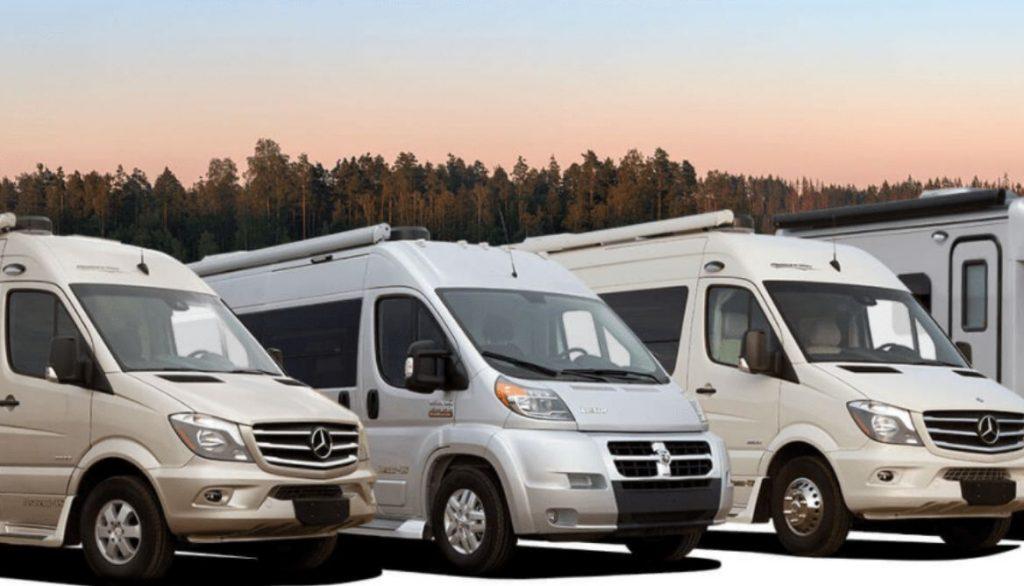
You might be curious about what we mean when we talk about RV consignment if you’ve never encountered the term previously. An RV consignment is similar to a committed wardrobe. Albeit on a gigantic magnitude. You’ll have someone else sell your recreational vehicle while you keep the title.
They’ll take care of scheduling and payments for you. They will receive a cut of the proceeds after it is sold. You should know the following before consigning a recreational vehicle:
- Owners in a more remote location may prefer to entrust rather than advertise and have open houses. Your recreational vehicle will gain more significant publicity at a dealership than if you tried to sell it on your own.
- The originally posted consignment join date at a dealership is between one and three months.
- There is no set rate for consignment. There is some consignment dealer that charge tire kickers a flat commission rate (say, 15 per cent) and others who take their cut on a percentage of the total amount.
- Certain car lots provide additional services like detailing and tune-ups. However, there is a price for these.
- While your recreational motorhome is on consignment, you might wish to protect it with insurance. Towards the end of this article, we’ll discuss insurance.
Should You Sell, Trade, or Consign Your RV?
Which approach you pick depends on your preferences and needs. When you sell, trade, or consign an RV, it will be examined, washed, expertly documented, and prepped for display so that it always appears as new as possible to potential purchasers. Ultimately, you might want to decide join date and how to sell your motorhome for the maximum profit.
Selling Isn’t Your Only Option — Explore a Trade-In
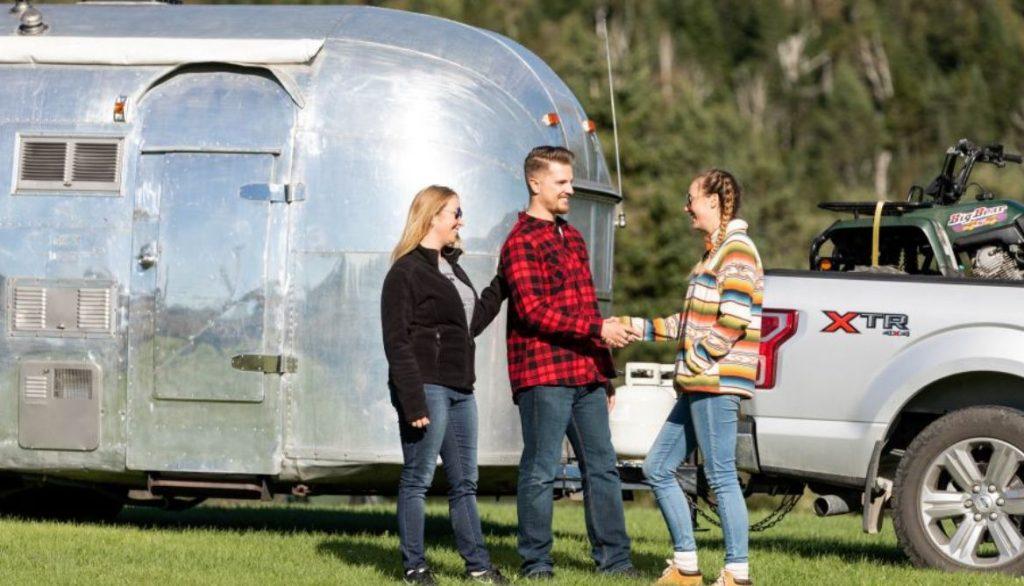
While it’s true that selling your RV and purchasing another one might be an easy process, it’s not your only choice. Trading in your recreational motorhome is another option to maximize your sale price. When you trade in your RV, you may use that cash toward the cost of a brand-new RV.
If you want to upgrade to a modern RV without giving up the freedom of the RV lifestyle, this is a great option. If you’re looking to simplify the process of selling your RV, whether you’re renovating or downgrading, a trade-in may be an option to consider.
Camping World Consignment Reviews: Camping World Consignment Process

To sell your vehicle as fast and effectively as possible, Camping World‘s consignment procedure employs a trained consignment sales staff that collaborates with a massive local dealer network. To what end? Get you more money for your RV. You can trust that your RV will find a nice home since it will be advertised on the most visited RV markets in the globe.
It’s simple and quick to donate your items! It may be broken down into a simple six-step process:
- Prep – In the first step, experts will check over your RV, give it a deep clean, and snap some photos of it.
- Advertise – Your RV will be shown on the top RV markets online, exposing it to millions of potential buyers every month.
- Sales Help – Camping World will demonstrate your recreational motorhome to potential purchasers and answer any questions they may have.
- Documentation – All the necessary papers for a transaction will be taken care of.
- Financing – As a means of closing the consignment deal, an RV trader may help the buyer and seller obtain financing from a variety of regional and local financial institutions.
- Payout – The proceeds from the sale will be used to pay off your bank loan and any related closing costs and paperwork.
Since the marketing, negotiations, and paperwork are all taken care of by experts, some owners prefer to sell on consignment instead of selling their RV, travel trailer, or fifth wheel privately. Managing the necessary papers on your own can be a time-consuming and exhausting task. Consignors of recreational vehicles must understand that they will not get paid until the RV or travel trailer is sold.
Get the Most Out of Selling Your RV
Contact dealers that are trustworthy and often do their best to maximise the sale price of consigned recreational vehicles. Nonetheless, whether or not they go the consignment route, owners may benefit from the following advice for making their RV stand out from the crowd.
- Wash the RV from top to bottom, inside and out.
- Tighten any sagging hinges and replace any burned-out lights.
- Have the oil changed and the car tuned up.
- Collect and sort through the various instructions, service records, and warranty documents.
Step-by-Step How to Sell an RV on Consignment
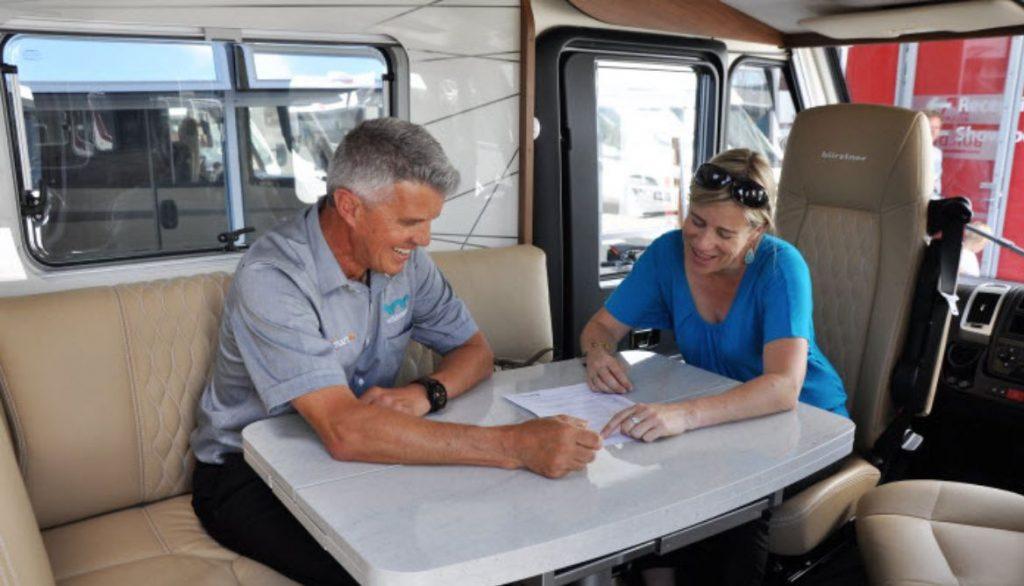
It’s not too difficult to sell your RV on a consignment contract, but you will have to put in some effort. The procedure is as follows:
Step 1: Get your facts straight first. Determine your budget and search for a trustworthy car dealer.
Step 2: Clean your RV and do basic maintenance such as changing light bulbs and repairing dripping faucets.
Step 3: Go to your trusted motorhome repair shop for all your mechanical servicing needs. If the dealership ends up fixing your car, expect to pay for it.
Step 4: You should talk to the dealer about the terms of the consignment and the pricing. If you have an estimate of costs, print it out and bring it with you. Your service history documents should also be ready.
Step 5: A listing price, fee, and length of the consignment will be agreed upon. Make sure you know about any hidden costs before signing anything.
Step 6: Contact every so often to see how things are going will demonstrate your interest in making a sale and won’t go unnoticed.
What to Know After Selling Your RV
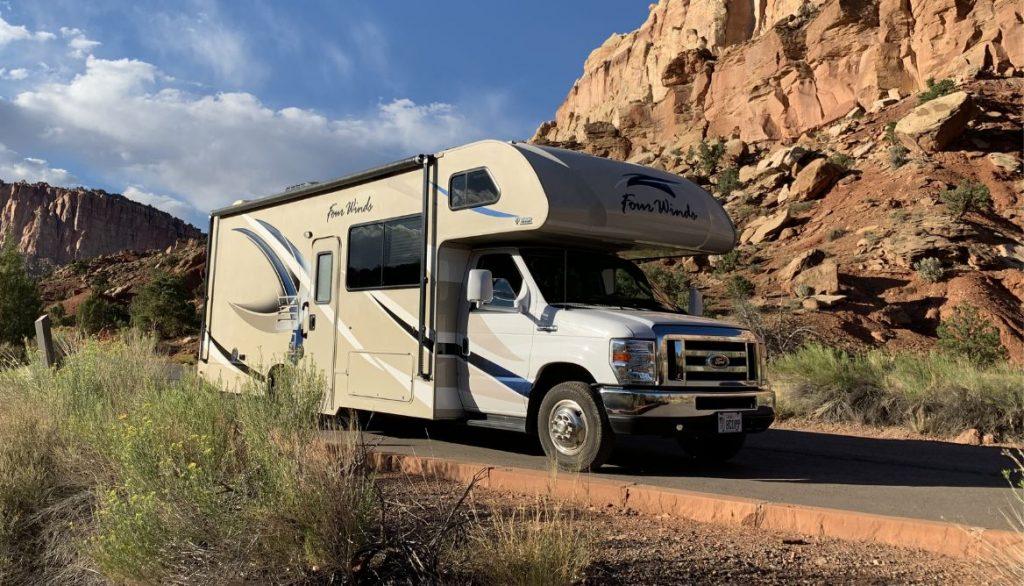
After selling your RV, it is important to take legal precautions to safeguard your interests.
The implication is that you must:
- Make sure you have all of the appropriate paperwork, and that it is right.
- Know your obligations and risks
- You should be familiar with the guidelines for your chosen manner of selling.
The easiest method to accomplish this is to fork over the cash necessary to retain the services of a lawyer who can provide you with sound advice on the legal problems you’ll face after selling your RV.
While initially, this may appear pricey, it might end up saving you quite a bit of money over time.
You may recall the story of the RV buyer who never showed up to take possession or sign the title. His situation is only one of many that might arise; unless you’re very knowledgeable, seek professional counsel.
In order to be sure your RV is ready to be purchased, you should talk to a private RV trader!
How Much Does RV Consignment Cost? Find Out the Fees and Rates
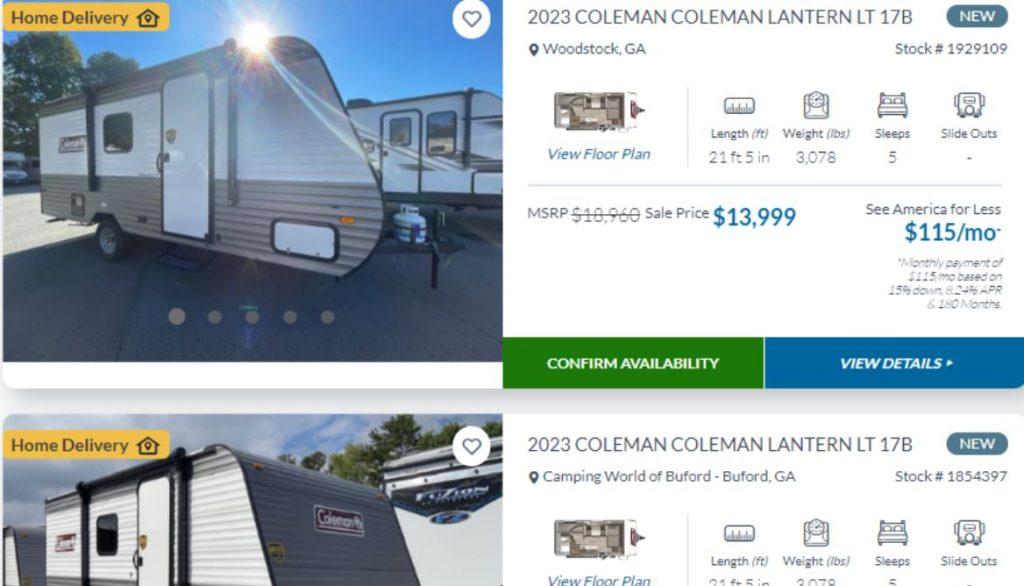
Due to the variability in RV consignment rates, exact cost estimates might be difficult to come up with. The consignment charge may also be affected by the dealership’s policies.
Your recreational vehicle’s fair market value may be found at NADA Guides. They will recommend a listing price based on the RV’s age, condition, and features. Commissions on consignments can be earned in two ways:
- A fee in the range of 10–15 per cent of the sale price is standard
- You and the dealer can set a price at which the dealer will only get paid if the item sells for more.
Let’s say your Class A RV has a fair market value of $100,000 and you want to entrust it. You settle on a listing price of $85,000, but it sells for $92,000.
The first scenario (10% commission) would result in a $9,200 dealer commission. During the second instance, the sum would rise to $7,000.
Although the second option is preferable, one might foresee potential issues if the dealer advertises the RV for an extremely cheap asking price. Therefore, before you consign your RV, you should find out what it’s really worth.
Do You Need RV Consignment Insurance?
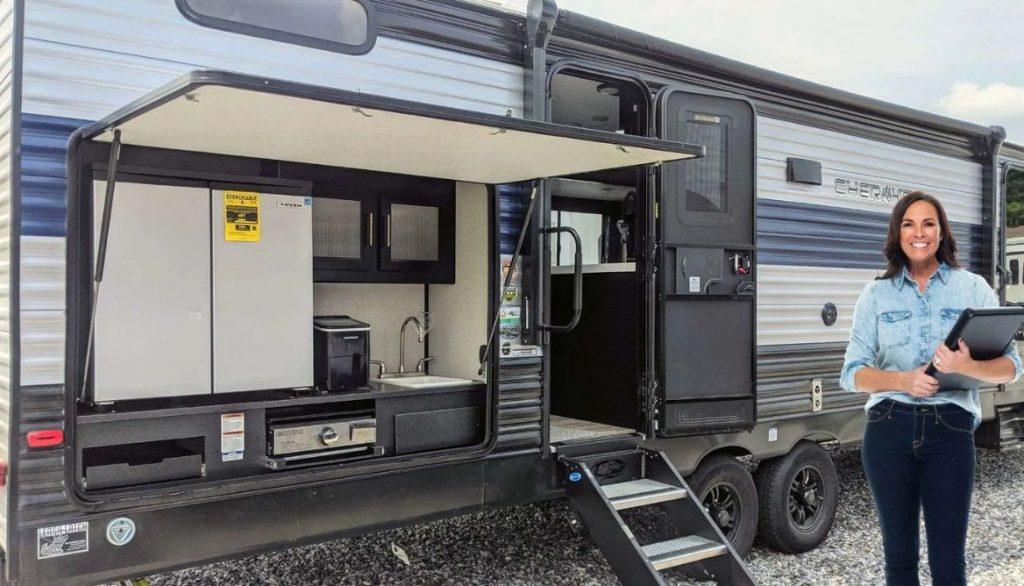
It’s easy to see why consignment insurance generates so much confusion among RV owners. Since your RV is insured beforehand, you might assume that it is protected even when it is at the dealer. However, many RV policies exclude consigned vehicles from coverage.
This presents a challenging choice. Despite cameras and controlled entrances being standard at car dealers, anything may happen. It is still possible for your RV to sustain damage in a fire or while being tested.
Regrettably, you will have to pay for any damages or losses incurred on consignment if you don’t have insurance. The key question is whether or not you are willing to take the chance of not obtaining consignment insurance.
Should You Consign Your RV?
Let’s get to the heart of the matter, though: should you sell your RV on consignment? There are benefits and drawbacks to consider with each major choice:
The popularity of peer-to-peer RV rental platforms should be considered before making a final choice. P2P networks unite RV owners and renters. You’ll be in charge of marketing your rental, charging whatever rate you see fit, and selecting which tenants to accept.
Have no fear; you’ll be backed by the marketing might and insurance protections of a major corporation. The best part is that you may keep your RV and continue to use it for vacations whenever you choose because you still own it.
How to Find the Best RV Consignment Near Me
Searching online for “RV consignment services near me” will provide relevant results. Be sure to investigate each dealer’s consignment policies thoroughly. The following questions might serve as a checklist:
- When it comes to commission, do they have a set percentage, or do they adjust it based on the difference between the asking and selling prices?
- In what join time frame does the consignment agreement run?
- Will they also perform maintenance tasks like cleaning and adjusting the motorhome?
- To what extent do you have to pay to park your RV? When cancelling, what is the fee?
- How popular is the dealership and how hard do they try to sell their products?
- What kind of precautions do they take to keep people safe?
- What do others say about their experiences at the dealership?
You may filter down your search to the best dealerships in your region by completing the following questions. Try to narrow your list of vendors down to no more than three. The next step is to schedule a face-to-face meeting to gauge their level of client support.
Who is Camping World’s biggest competitor?
RVtrader.com, Westmarine.com, Basspro.com, Academy.com, and others are among the top competitors.
How much debt does Camping World have?
With a debt load of about $2.4 billion, yearly net interest expenditure dropped to a low of about $61 million in FY21.
Can you sleep overnight at Camping World?
Indeed! Parking lots at Camping World RV dealerships are often rather small. Many of them, though, do have sleeping quarters available.
What is the 2 2 2 rule for camping?
If you’re on an RV trip, the 2/2/2 rule is a foolproof method to organize your join date and time on the road. The plan is to travel no more than 200 miles per day, with stops every 2 hours and a minimum of 2 nights spent in each location.
Are RV sales slowing down in 2023?
In terms of shipments in 2023, the estimate anticipates a range of 409,000 to 429,000 units, with a most probable year-end total of 419,000, a (-16%) decrease from the anticipated 2022 total.
What state has the most RV parks?
Texas claimed the most RV parks, with a total of 376.
Who is the largest RV dealer in the world?
With eight locations, three thousand recreational vehicles (RVs), eighty different brands, three hundred and eighty service bays, two hundred and seventy RV sites at two campgrounds, and a resort in Florida, Lazydays RV claims to be the largest RV dealer in the world.
How does Camping World make money?
The American business Camping World Holdings, Inc. focuses only on the sale, distribution, and servicing of recreational vehicles (RVs), RV components, and RV service. In addition, they also sold camping gear.
Does Camping World have a good reputation?
The average customer review for CampingWorld is only 1.59 stars, reflecting dissatisfaction among buyers.
Did Camping World get bought out?
The stock of Camping World can be purchased by anyone. This indicates that there is no sole proprietor. Marcus Lemonis does not control the corporation, although he does own around 45.6% of it or about 550,000 shares. He owns the most shares in the company outright.
Is Camping World a real company?
Positive! It is purely a real company. The subsidiaries of Camping World Holdings, Inc. make it the largest RV store in the United States.
Conclusion
It’s time to do something about that RV gathering dust in the driveway. Those who don’t feel like handling the sale of their RV on their own might benefit from consigning it.
There are, however, some drawbacks, such as the expense and the inability to utilise your RV while it is stored. You may also start renting out your RV on a P2P network and use it as a side business. You may use your RV as much as you like while still turning a profit.
Do you have an RV in mind that can get you the most benefit during the consignment process? Share your opinion in the comment section below as we would love to hear your point of view!

I`m a current Law Enforcement Officer working within the Counterterrorism Bureau in New York State. I have been Camping for over 20 years. My styles of camping include tent, car, truck, van, and RV travel trailer. I have a YouTube channel where I teach all types of camping with an entertaining method: https://youtube.com/@TheSmallsRVAdventures






